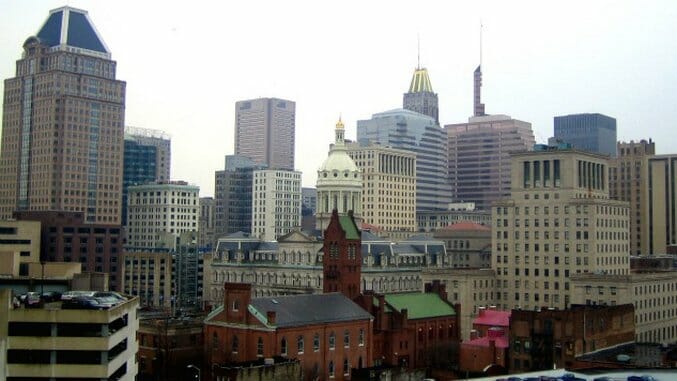
Look, if you’re producing an episode of television and you add the names Charlie Day, Jesse Plemons, Jason Ritter and Martin Starr to the call sheet, half your work is already done for you. “Baltimore” is easily the strongest episode of the season, probably in small part because it focuses on Derek Waters’ hometown, but in large part thanks to the solid-comedy-chops cast and three well-told American tales.
First up is Paget Brewster, another can-do-no-wrong star in my book, promising Waters she’s going to “fucking punch you in the balls” with the story of the Baltimore Plot, an 1861 conspiracy by Southern rebels to assassinate Abraham Lincoln (Starr) during a whistle-stop tour. Detailing how the alleged plan was foiled by detective Allan Pinkerton (Day), Brewster manages to tell a genuinely interesting, coherent story, save for a rogue moth in the room and her drunken inability to remember Lincoln’s hat was a stovepipe. (“Pop-Tart hat?”)
Part of the brilliance of Drunk History overall is how, in a time when everyone essentially listens to TV while staring at their iPhones, Waters has created a show you actually need to watch to get the joke. And when you’ve got Day’s expressive interpretations of Brewster’s mock-Southern accent, frequent f-bombs and involuntary giggles, it’s easy to keep your eyes glued to the screen.
A significantly more drunk Henry Phillips tells the significantly more famous story of Francis Scott Key, played by a surprisingly low-key Jeffrey Ross. James Adomian gets the hammier moments as British Vice Admiral Alexander Cochrane, whose dialogue is punctuated by constant crack-ups from Phillips. Because the story itself holds few surprises, the biggest laugh comes from Key’s casually anachronistic use of an iPhone to call his brother and tell him about the new poem he wrote. Overall, not much for Waters and crew to work with here, but they milk what they can.
Finally, Duncan Trussell recounts the rivalry between Edgar Allan Poe and Rufus Griswold, whom he colorfully describes as “one of America’s first pieces of shit.” (If that really is Trussell’s monochrome, candlelit house, then I trust him as someone who knows a lot about Edgar Allan Poe.) The typically more dramatic Plemons shows he’s equally skilled at comedy, though he deepens Poe with a spark of the same intensity he gave Todd on the final season of Breaking Bad. Ritter brings just the right amount of mustache-twirling histrionics to Griswold to get laughs and simultaneously create sympathy for Poe. The meta, breaking-the-fourth-wall ending feels like a bit of a copout, and Trussell seems to know it, but it doesn’t dampen an otherwise stand-out scene.
It feels like for Drunk History, the older the history, the funnier the episode. The subjects are each more iconic and more revered, thus heightening the irony of the modern-day portrayals. “Baltimore” benefits by dipping into this deeper well, versus the more current stories depicted in an episode like last week’s “American Music.” Next week already sounds like more of the winning Drunk History formula: the city of Charleston, with a guest appearance by Patton Oswalt. You almost don’t even need to watch it, except that you very much do.